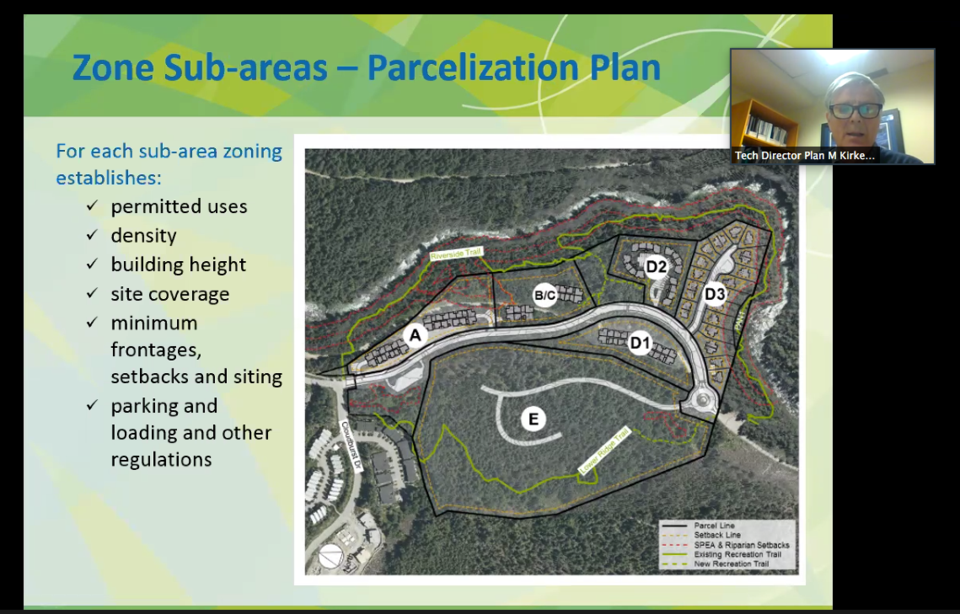The Resort Municipality of Whistler (RMOW) is one step closer to building more employee housing in Cheakamus Crossing after a virtual public hearing on Jan. 26.
More than 40 people tuned in for the public hearing, which comes after a related rezoning bylaw received first readings on Dec. 15.
Once adopted, the bylaw will allow for about 295 additional units of housing in the neighbourhood, to be developed in stages and to include a mix of both rental and ownership (though the final mix is yet to be determined).
Seven people spoke at the public hearing (along with 11 pieces of written correspondence), voicing concerns over things like increased traffic, maintaining recreation access, the cost of the new housing, the need for more ownership over rental, and more.
“We live right on Mount Fee Road, so seeing an increase in traffic is concerning, but the main concern I have is that of access,” said Michele Stalker.
“With one access point to all of Cheakamus Crossing, and over a river, over a bridge, if there were an emergency evacuation, there needs to be some other way to get all of the residents out of the area in a quick fashion.
“Is there a way that we can utilize the forest service road, and have that as a secondary access point so that there is this emergency access, and evacuation route?”
From a recreation perspective, local kayakers are hoping to clarify access to the Cheakamus River, as the development will necessitate the rerouting of the westside Cheakamus Lake Forest Service Road.
“We have no issue with the actual development itself, we just want to maintain good relationships between the recreational users and local residents,” said Pemberton’s Phil Middleton, who said he and other kayakers have been using the FSR as their main access to the river for more than a decade.
“The concern is putting all of these recreational users through the entire neighbourhood,” he said.
“We just worry that it will cause tension, and cause sour relationships down the line.”
In response to concerns about the removal of trees on the land, “my understanding is we were entitled to clear that no matter what the zoning of the property was, as the owners,” said Councillor Ralph Forsyth—which director of planning Mike Kirkegaard confirmed.
“That [Parcel A] development was approved under the existing zoning, and a permit was approved [on Sept. 15],” he said.
“And that permit provided for the site clearing, and so it was considered and approved through that process.”
With a geopark project also in the works that aims to bring visitors to Loggers Lake, and a gas station planned across the highway at Function Junction, the makeup of the neighbourhood is indeed set to change drastically in the coming years (though it should be noted that the RMOW can’t just build housing anywhere—it was granted the land at Cheakamus specifically for affordable housing through the 2010 Winter Olympic and Paralympic Games legacy agreement).
“I am really, really concerned about Function Junction; that whole area with the gas station coming and everything, it’s going to be such a bottleneck, [with] people from Vancouver coming to use Cheakamus as a recreation area,” said Petra Gier.
“[For] we who live here, you have to consider the noise pollution.”
All public submissions will be compiled into a summary report, which will be presented to council before consideration of adoption, Kirkegaard said.
“Staff will be reviewing each of the submissions, questions that are asked, and the issues that are raised,” he said.
“And that report will be a public report presented to council in an open meeting of council.”




